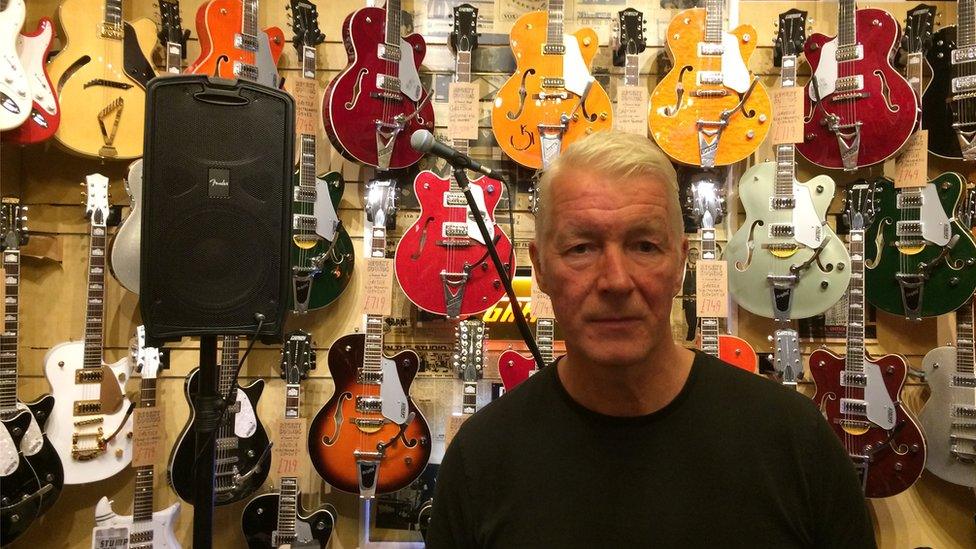Music venues in the UK have reached crisis point, says London club owner
- Published

The loss of music venues across the UK has reached "crisis point" according to one venue owner.
Jeff Horton runs the 100 Club in London and thinks the consequences of more closures could be massive.
"Without places like the 100 Club and other grassroots venues, where are tomorrow's headline acts going to come from?" he asked.
"You can't keep churning out the same old acts, which you can already see is happening."
There are many reasons why small venues have been forced to close with issues ranging from noise complaints and licensing restrictions to financial problems.

Jeff Horton runs the 100 Club in London
Monday saw representatives from venues all over the UK attend the Music Venues Day at the Ministry of Sound in London to discuss the future.
It comes a day after the Mayor of London, Boris Johnson, put his weight behind a campaign to stop the closure of venues in the city.
Proposals include support for the Agent of Change principle, which puts the responsibility of potential problems arising from building homes near venues on to the developers rather than the live venue owners.
Frank Turner has shot a video calling for changes to planning laws to protect live venues., external
That would mean builders having to soundproof new homes instead of venues. 31,000 people have signed a petition, external calling for it to be introduced.
It's something Jeremy Ledwell, who runs the Shacklewell Arms in east London, says is "the best part of Boris's plan".
But for him and many other venue owners, government funding is key.
Yannis from Foals explains why small venues are important
At the moment, the Arts Council gives grants to emerging artists but he thinks that money is misdirected.
"I think when money is invested on artists specifically, it is a little bit of a roll of the dice," he said.
"If you put money into venue infrastructure, you are actually contributing to the growth of hundreds and thousands of artists.
"You are actually spreading the risk and I think that is a really great way to spend public money."
Small venues play an important role in the economy, feeding into the UK's £3.8bn music industry.
But musicians also get to learn their craft on the scene, which many music managers see as an invaluable part of an artist's career path.

Catfish and The Bottlemen toured the UK for four years before they were signed.
The result was a polished, ready to go live act, with a frontman already able to interact with the crowd, before their first album is released.
And according to Mark Davyd who runs the Music Venue Trust charity, Ed Sheeran owes his career to the live music circuit.
"We see Ed Sheeran go from a tiny room on a Tuesday night in front of four people to Wembley stadium," he said.
"That is a fantastic success story, but at the moment we don't reward everyone in that success story, and specifically we don't reward the grassroots music venue."
So, Mark has a proposition for Ed.
"He should go somewhere busking and he should fill a guitar case with £50 notes," he proposes.
"What we will do is get every music venue in the country that lost money on putting Ed Sheeran on, to walk up and take £50 out of the guitar case, not because I don't like Ed Sheeran but because that is how that career was built."
Follow @BBCNewsbeat, external on Twitter, BBCNewsbeat, external on Instagram, Radio1Newsbeat, external on YouTube and you can now follow BBC_Newsbeat on Snapchat